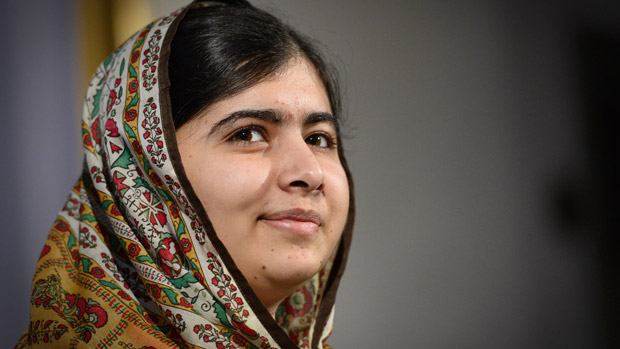What is Malala Yousafzai up to now?
Youngest ever Nobel Peace Prize winner shines light on plight of refugees in new book

A free daily email with the biggest news stories of the day – and the best features from TheWeek.com
You are now subscribed
Your newsletter sign-up was successful
Malala Yousafzai has become one of the world’s most powerful voices on female education - and now she is trying to use her influence to help refugees.
At the age of just 21, she has already written a handful of books, the latest of which recalls her own arrival in the UK. “It did feel as if we had landed on the Moon - everything looked, smelled, and felt different,” she writes in We Are Displaced: My Journey and Stories from Refugee Girls Around the World Yousafzai.
Speaking about her new book, published earlier this month, she told Bustle: “What tends to get lost in the current refugee crisis is the humanity behind the statistics... I hope that by sharing the stories of those I have met in the last few years I can help others understand what’s happening and have compassion for the millions of people displaced by conflict.”
The Week
Escape your echo chamber. Get the facts behind the news, plus analysis from multiple perspectives.

Sign up for The Week's Free Newsletters
From our morning news briefing to a weekly Good News Newsletter, get the best of The Week delivered directly to your inbox.
From our morning news briefing to a weekly Good News Newsletter, get the best of The Week delivered directly to your inbox.
Yousafzai comes from the Swat valley, a deeply conservative region of northwest Pakistan where girls have periodically been banned from attending school. She has long campaigned for girls to be allowed an education, stepping up her efforts after the Taliban were driven out of the region in 2012.
But the growing prominence of her activism led Taliban gunmen to target Yousafzai, who had begun blogging anonymously for BBC Urdu when she was just 11. She was shot in the head as she returned home after an exam, and was then flown to the UK for life-saving treatment.
By the time Yousafzai recovered from her injuries, “she had become a global icon of the human toll of Islamist extremism, meeting with prime ministers and presidents”, says The New Yorker.
So what has she been doing since?
A free daily email with the biggest news stories of the day – and the best features from TheWeek.com
Yousafzai has continued her advocacy for girls’ access to education after starting a new life in Birmingham with her family, and in 2014 became the youngest ever recipient of the Nobel Peace Prize.
Three years later, she won a place at Oxford University’s Lady Margaret Hall to read philosophy, politics and economics. At the end of her first year she was elected social secretary, organising events such as “an outdoor movie night, a jazz night, and a garden party”, according to the BBC.
In March last year, Yousafzai was able to return to Pakistan for the first time since the attack. “That was the highlight of 2018. I went home and saw my friends, my school teachers, my neighbours, my family members, everyone. We met like hundreds of people there and it was beautiful to see our home again,” she told Seventeen magazine.
“They had still kept [the house] as it was before and my school trophies, books, my bed cover, everything was still there and it was just so beautiful to see that. In a way, it was a sense of completion. I always felt like there was something missing in my life.”
In October, as she embarked on her second year at Oxford, Yousafzai told Vogue magazine that her “plan is to find a better balance between college work and social life”.
“I want to prioritise the activities that interest me the most and get a better idea of what I want my life to look like post-graduation,” she said.
“I don’t know yet what career path I will choose - but I know I’ll keep advocating for girls and women. If one girl with an education can change the world, just imagine what 130 million can do.”
Earlier this month, Yousafzai told The New Yorker: “When I’m in college, I’m focused on my studies, go to lectures, do my essays, and spend time with friends. Also, when I get time, then I do campaigning. I go to different countries, from Brazil to Iraq, and meet the girls who are fighting for their right to an education.”